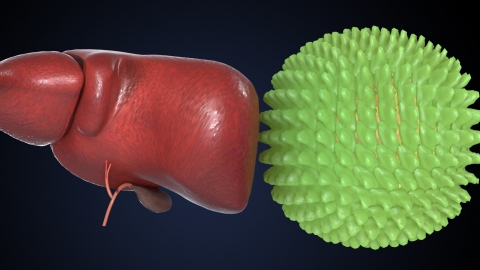Can hepatitis B be inherited by children?
Hepatitis B usually refers to chronic hepatitis B. Under normal circumstances, chronic hepatitis B is not hereditary, but the virus can be transmitted to children through mother-to-child transmission or close contact. If discomfort symptoms occur, it is recommended to seek timely diagnosis and treatment at a regular hospital. Detailed analysis is as follows:

Chronic hepatitis B is not hereditary and cannot be passed on to offspring through genes, which fundamentally distinguishes it from hereditary diseases. However, the hepatitis B virus is contagious and can mainly affect children in two ways: first, mother-to-child transmission, where the virus may be passed to the fetus or newborn through blood or bodily fluids during pregnancy or delivery; second, transmission through close contact, whereby children may get infected if their skin or mucous membranes are damaged and they come in contact with the patient's virus-containing secretions such as blood or saliva. Fortunately, these transmission risks can be effectively blocked through scientific measures.
Female patients must consult professionals before planning pregnancy, develop individualized mother-to-child transmission prevention plans after evaluating their condition, and strictly follow guidance for related interventions during pregnancy. Newborns should receive the hepatitis B vaccine and hepatitis B immunoglobulin immediately after birth to minimize the risk of infection. In daily life, patients and their children should avoid sharing personal items that may come into contact with blood, such as toothbrushes and razors, to reduce the likelihood of close-contact transmission. Additionally, children should undergo regular hepatitis B antibody testing to ensure the ongoing effectiveness of protective measures.







